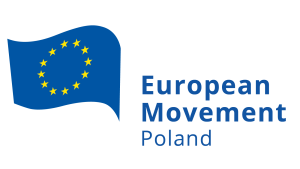On October 25, 2023, the Committee on Constitutional Affairs of the European Parliament supported a draft resolution calling for reform of the functioning of the European Union. In the coming days, the resolution can be expected to gain the support of the entire Parliament.
We appeal to Polish MEPs to vote in favor of the resolution. At the same time, we appeal to the Polish government to support the decision of the European Council to convene a convention that will present appropriate proposals. We would also like to underline that the final decisions on amendments to treaties are made unanimously by the intergovernmental conference, and the decision of the conference must also be ratified in each member country.
The direction of changes proposed in the resolution is consistent with Polish interests. The resolution identifies the following important elements of the proposed reform:
- The democratic foundations of European institutions will be strengthened. The European Parliament, as the only directly elected representative institution in Europe, will gain the right to legislative initiative. The role of Parliament in the procedures for adopting the EU budget and electing the President of the Commission will be strengthened. National parliaments will also gain the right to European legislative initiative. Citizens will have the opportunity to decide on trans-European issues in the form of a referendum.
- The Union’s competences will be expanded, but at the same time control over observing the subsidiary principle will be strengthened. Issues of environmental protection and biodiversity would be transferred to the exclusive competences of the Union, whereas issues of health protection, especially cross-border threats, education, especially in matters of recognition of diplomas and qualifications, border protection and migration – to shared competences. In the field of energy, the Union’s task will be to ensure cheap and clean energy for all and greater energy efficiency. At the same time, the actions of national parliaments and the Court of Justice to enforce the principle of subsidiarity will be facilitated.
- The decision-taking procedure in the European Union will become more democratic. Selected foreign and defense policy issues will become subject to qualified majority voting in the Council, in line with economic matters, which have long been subject to QMV. Strengthened QMV will be applied to tax harmonization matters and changes in treaties. The model of imperfect, inefficient democracy, based on the principle of unanimity, i.e. tantamount to liberum veto, will become a thing of the past. Let us recall that the liberum veto led the First Polish Republic, then a great European power, to decision-making paralysis, its collapse and partition by three partitioners.The European Union, if it is to be an efficient organization and play a role in the modern world adequate to its potential, must choose a model of effective democracy in which the principle of liberum veto is limited to a minimum. In Parliament a simple majority rule should govern whereas QMV or – in exeptional cases – strengthened QMV in the Council. Let us remind that a qualified majority will mean at least 50% of the population and at least 2/3 of the EU member states, while a qualified strengthened majority means at least 4/5 of the member states. Using such voting rules, it is not possible for a few large countries to impose their will on the rest of the EU members.
In the last few years, due to the liberum veto principle, several European Council decisions on Russia, Belarus, Syria, other countries, and even aid for Ukraine have been rejected, diluted or postponed. We cannot maintain a treaty situation in which one member state can block all EU sanctions against Russia and its oligarchs, Belarus or Iran, close the EU’s financial and military assistance to Ukraine, or paralyze the EU’s activities in other matters.
- The draft resolution also proposes taking steps to establish a European Defense Union. European rapid reaction units are to be created. The European Defense Agency will be authorized to make direct purchases of weapons within the budget allocated to it. The Union’s common tasks would be extended to include defense against cyber-attacks, energy blackmail and disinformation campaigns. It is planned to include two new principles in the treaties indicating that:
- aggression against one Member State will be considered an attack against all Member States;
- each Member State will be obliged to provide assistance to the attacked state.
A defense union would significantly strengthen the security of Poland and the entire continent. Contrary to some false statements, the resolution does not propose any restrictions on national armed forces or the removal of US troops from Europe. EU troops are to be able to act independently and at the same time strengthen the European pillar of NATO. - The current treaties entered into force on 1 December 2009. Since then, the European Union has faced unprecedented challenges and numerous crises, in particular Russia’s war of aggression against Ukraine. The proposals contained in the EP resolution will increase the Union’s ability to act, facilitate the admission of new members, and strengthen its democratic legitimacy.
On behalf of the European Movement Forum
Marcin Święcicki, President
Warsaw, November 17, 2023

